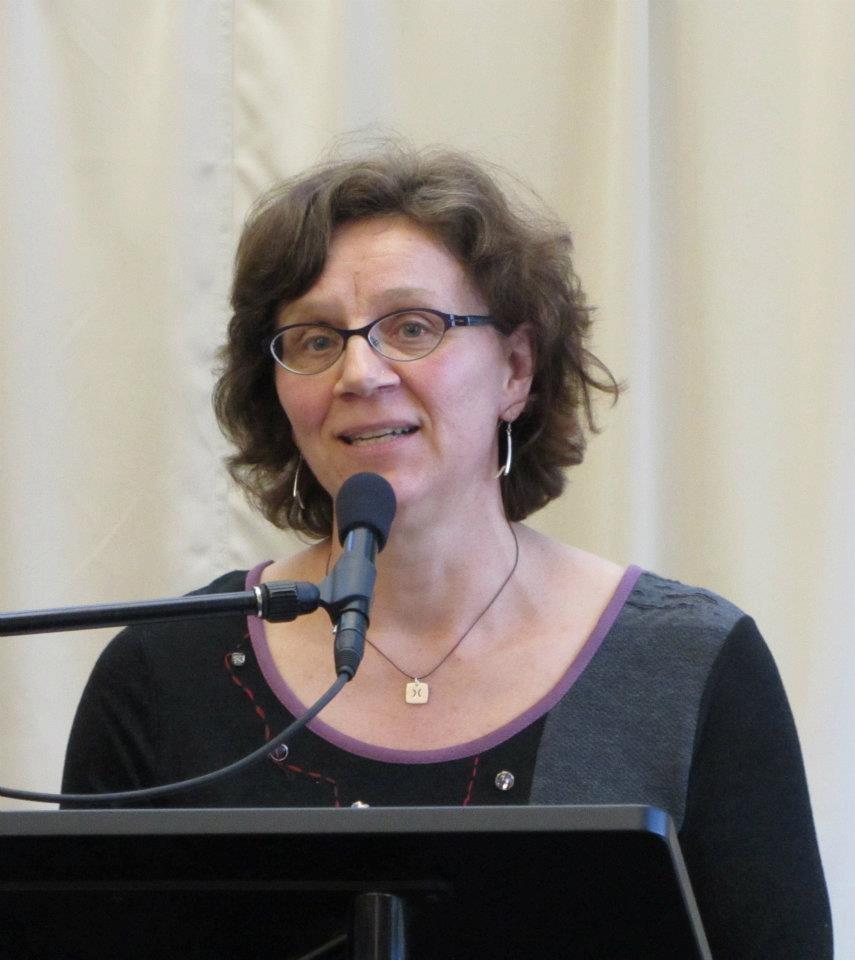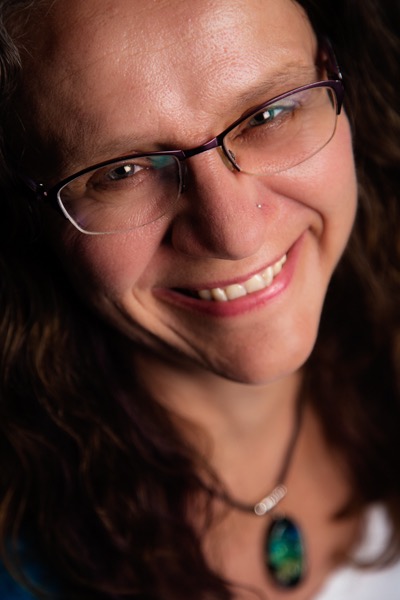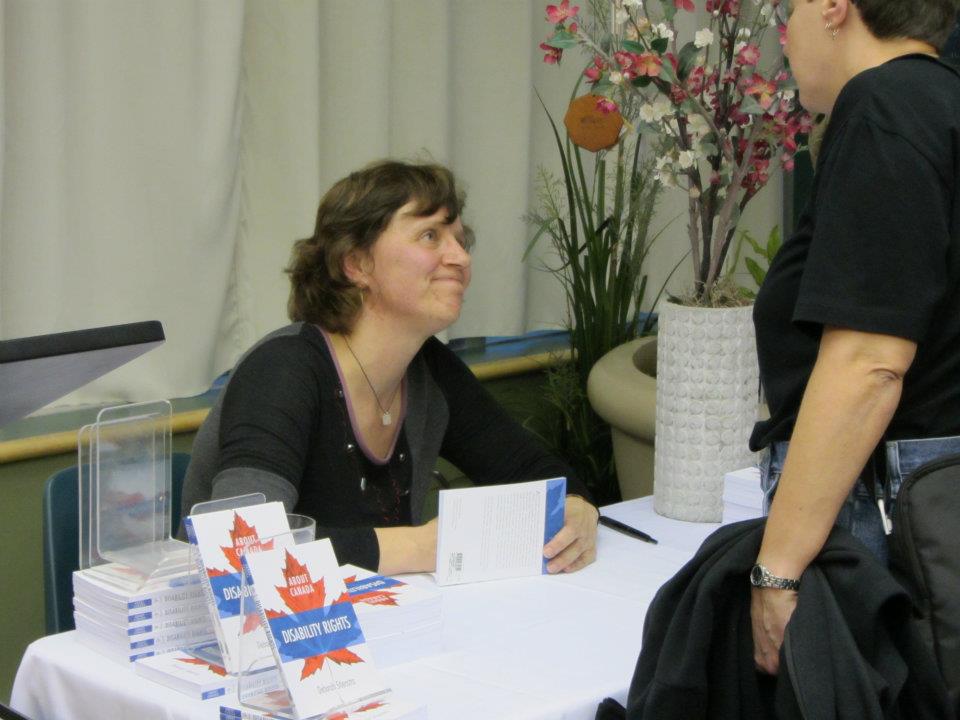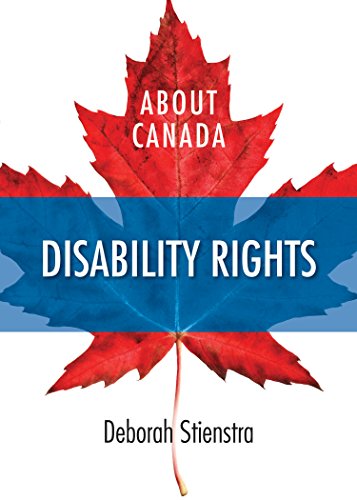
Media
Including: Good Palliative Care for All
Vulnerable Persons and End of Life New Emerging Team (VP-Net) was a study that examined palliative care and end of life issues for those traditionally thought of as vulnerable, including people with disabilities. Presenters include Dr. Harvey Max Chochinov, Dr. Deborah Stienstra, Dr. Zana Lutfiya, Dr. Joseph Kaufert, Mr. Jim Derksen For more information: http://www.vp-net.ca
Building Links Among Women (Described Video)
Follow along as a group of diverse women from Nova Scotia travel to the site of a new hydroelectric installation at Muskrat Falls in Labrador. With Labradorian women as their guides, the travelers learn where the electricity that will power their homes and communities in the near future is coming from and come to understand the toll this dam is taking on the local environment, economy, and social fabric. Produced by M’ikmaq filmmaker Catherine Martin, this moving documentary will leave you grappling with some important questions as the world begins to shift away from use of fossil fuels. What is the price we pay for “green” energy? How should local communities be prepared for and involved in “green” power developments? Are the costs of green power worth the overall benefits?
Finding Canada’s Way Again on the Rights of Persons with Disabilities
Centre for International Policy Studies, March 31, 2016Online
It has been ten years since the government of Canada signed the Convention on the Rights of Persons with Disabilities. Ottawa's first report on our progress in furthering those rights in Canada’s domestic and international policies shows a mixed record to date, but also many opportunities for the new federal government to makes its mark in this important domain. What can the government of Canada do to rebuild its role as a promoter of global disability rights, particularly through its diplomacy and international development cooperation? Deborah Stienstra and Steve Estey share their evidence-based ideas for action.
Federal government has responsibility to critically evaluate Muskrat Falls, other resource development projects
The Hill Times, August 16, 2016Online
URL: https://www.hilltimes.com/2016/08/15/76744/76744
Deborah Stienstra, Gail Baikie, Jane Stinson and Leah Levac examine why it is necessary to have a gendered, intersectional analysis for evaluating resource development projects as a part of the environmental assessment process.
Disabled northern and Indigenous women need to be part of the policy process
Policy Options, April 21, 2016Online
Quite a lot has changed for women since the Charter of Rights and Freedom was approved in 1985, and those of us working for equality and gender-based analysis have seen many improvements. And yet, we also know once we examine the impacts of policies on diverse women like Indigenous and disabled women some things have not changed. Susan Manning, Gail Baikie and Deborah Stienstra share their research findings on women with disabilities in Northern Canada.

Feminist Perspectives on Canadian Foreign Policy
by Claire Turenne Sjolander, Heather A. Smith, Deborah Sienstra
Oxford University Press
195418360
This books seeks to deconstruct Canadian foreign policy. In doing so the book asks: what makes foreign policy 'different' from other policy spheres? How does the study of foreign policy as it is traditionally defined keep gender/women out of statist and institutional analyses?
Through a close examination of employment, education, transportation, telecommunications and health care, About Canada: Disability Rights explores the landscape of disability rights in Canada and finds that, while important advances have been made, Canadians with disabilities still experience significant barriers in obtaining their human rights. Using the stories and voices of people with disabilities, Deborah Stienstra argues that disability is not about “faulty” bodies that need to be fixed, but about the institutional, cultural and attitudinal reactions to certain kinds of bodies, and that neoliberal ideas of independence and individualism are at the heart of the continuing discrimination against “disabled” people. Stienstra contends that achieving disability rights is possible, but not through efforts to “fix” certain kinds of bodies. Rather it can be achieved through universal design, disability supports, social and economic supports and belonging — in short, through foundational social transformation of Canadian society.
Trumping All? Disability and Girlhood Studies
Published by Girlhood Studies
June 1, 2015
Recent global attention has been directed to the situations of girls and boys with disabilities, yet research tells us little about the experiences and perspectives of girls with disabilities except that their lives are filled with barriers, violence and stigma. I explore how girlhood studies can authentically include girls with disabilities. Drawing on feminist disability studies, I argue that we can use intersectional theory to identify and include the experiences of girls with disabilities, and explore diverse embodiments of girlhood. In doing this we can remove the trump card of disability and see disabled girls as an integral part of girlhood and girlhood studies.
URL: http://www.berghahnjournals.com/view/journals/girlhood-studies/8/2/ghs080205.xml
Northern Crises: Women's Relationships and Resistances to Resource Extractions
Published by International Feminist Journal of Politics
August 27, 2015
Using feminist disability studies and intersectionality, this article draws upon the ongoing resource extractions in Labrador, Canada to argue for examining local communities and relationships as one way to understand gender and global social, economic and environmental crises. The article explores how crises in Labrador have been constituted and maintained around global agendas of economic and resource development, historical and current colonial practices and a limited and constrained international relations with local Indigenous nations.
URL: http://www.tandfonline.com/doi/abs/10.1080/14616742.2015.1060695
For Michael Charlie: Including girls and boys with disabilities in the global South/North
Published by Disability and the Global South
June 30, 2015
Recognizing that there are pockets of the global South in the global North, I illustrate in this paper how Indigenous and northern children with disabilities and their relationships with their care providers have been rendered invisible and excluded by jurisdictional disputes between levels of government, an ongoing drive to institutionalize children with disabilities and longstanding colonial and capitalist values and systems. The paper highlights how Jordan’s Principle, an Indigenous child-first response offers a small first step in ensuring children with disabilities in Indigenous and northern communities in Canada, access to necessary services in their communities.
URL: https://disabilityglobalsouth.files.wordpress.com/2012/06/dgs-02-02-05.pdf
Biography
For more than twenty years, Deborah Stienstra has been researching, teaching, and building relationships to make change in this world. Stienstra works for transformative inclusion so diverse women and men with disabilities, Indigenous people, and girls and boys from around the world can participate in their communities and societies. She works to create spaces for stories and insights to be shared. She engages with students, researchers, policy makers, and the public to share what she earn. As a result, Stienstra's research can be found in academic publications, on websites, Twitter, and Facebook, as well as in FactSheets and Policy Impact Papers. Stienstra's research partners are those who have seen the need to tell the stories and advocate for change. Her research covers a range of sectors including resource development, global development, information technologies, end of life care, health care, trade relations and others.
Recognition/Reconnaissance
United Nations Expert Group Meeting on Women and Girls with Disabilities | Professional
The purpose of the United Nations Meeting in Santiago, Chile, is to identify strategies and develop recommendations to amplify the voices of women with disabilities and address persistent barriers to their empowerment, including by building synergies between gender equality and disability inclusion, addressing the intersectionality of gender and disability and mainstreaming gender equality and disability in the operationalization of the 2030 Agenda for Sustainable Development.
Research Grants
Understanding the impacts of northern urbanization and the development agenda on women: Feminist intersectionality and the participatory development of community vitality indices
Organization: Social Sciences and Humanities Research Council of CanadaDate: May 1, 2015
Grant amount: $475,110
Details:
In September 2012, a small group of women in Happy Valley-Goose Bay, Labrador, along with an even smaller group of academic researchers, began a journey to create a community vitality index (CVI); a tool to track changes to the wellbeing of women in the community. Women’s wellbeing is critical to gender equality and increasingly important as the new Lower Churchill Hydroelectric Dam has “the potential for adverse effects resulting from high wage employment, including increased substance abuse, and sexual assault, family violence and [other] effects on women and children in Happy Valley-Goose Bay…” (Report of the Joint Review Panel, 2011).
More information: http://fnn.criaw-icref.ca/en/page/community-vitality-index
Gendered and Intersectional Implications of Energy and Resource Extraction in Canada’s Northern Resource-based Communities
Organization: Social Sciences and Humanities Research Council of CanadaDate: November 2, 2015
Grant amount: $24,990
Details:
As the quest for valuable natural resources in Canada’s northern and Arctic communities continues, we ask, “What tools and policies are in place to assess the gendered and diverse impacts resource projects have on the people who live in these communities”? We investigate how governments, private companies, and communities can work together to advance the benefits and address the consequences of resource extraction in northern communities.
More information: http://fnn.criaw-icref.ca/en
FemNorthNet: Learning from women’s experiences of community transformations as a result of economic restructuring
Organization: Social Sciences and Humanities Research Council of CanadaDate: June 14, 2010
Grant amount: $1,000,000
Details:
New economic development in northern Canada is changing communities socially, economically, and culturally. The Feminist Northern Network (called FemNorthNet) wants to know the downside of ‘up’ that cannot be ignored. Our research asks: HOW do these economic developments affect women in Northern communities? WHAT can women do to bring positive change to their Northern communities?
More information: http://fnn.criaw-icref.ca/en
Building Links between Women: Muskrat Falls and the Maritime Link
Organization: Social Sciences and Humanities Research Council of CanadaDate: September 2, 2013
Grant amount: $49,970
Details:
The Building Links among Women Project creates opportunities to think, learn, and talk about how hydroelectric development affects the lives of diverse women. Our conversations and activities started with the Muskrat Falls-Maritime Link Hydro-electric Project – both the impact it is already having as well as the future dangers it may pose for women in Labrador, Newfoundland, and Nova Scotia.
More information: http://fnn.criaw-icref.ca/en/page/building-links
“(Re) Building Inclusive Societies: Critical reflections on disability and global development
Organization: International Development Research CentreDate: April 1, 2015
Grant amount: $68,000
Details:
Re)building Inclusive Societies: Critical Reflections on Disability and Global Development is a partnership of researchers, disabled peoples' organizations and policy makers. The partnership will create and share knowledge about the situations of women and men, boys and girls with disabilities in global development, particularly in post-disaster and post-conflict situations.
More information: http://msvu.ca/dgd





